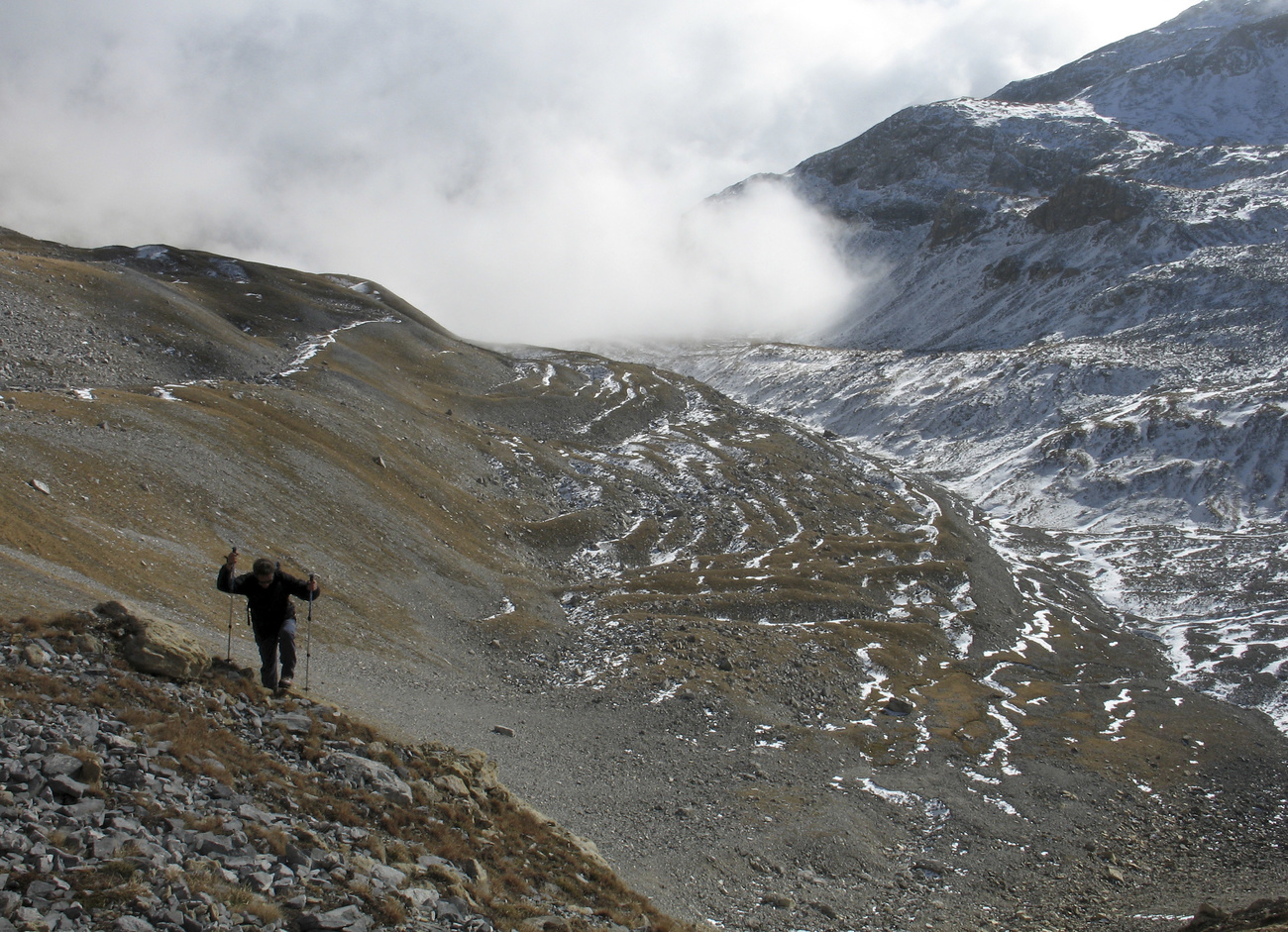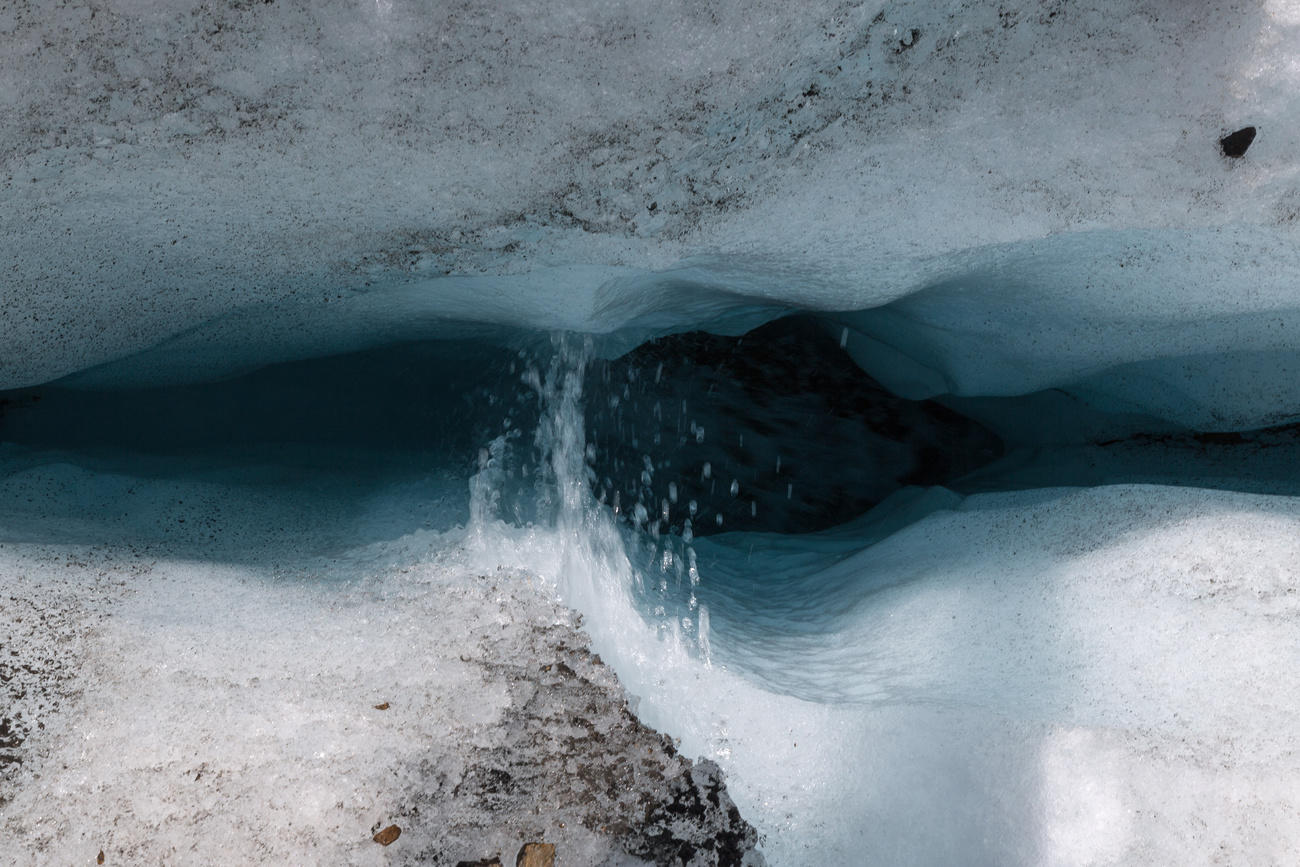
Swiss permafrost continues to thaw

Permafrost in Switzerland has warmed up, numerous signs of degradation have been observed and most rock glaciers have become much faster, concludes the Swiss Permafrost Monitoring Network (PERMOS) after 20 years of observations.
Permafrost temperatures measured in bore holes have increased at all 15 monitoring sites, researchers said in a statementExternal link. The longest series of measurements, going back 32 years, from the rock glacier Corvatsch-Murtèl in the Upper Engadine valley show that the permafrost has warmed up by about 1°C at a depth of ten metres and by about 0.5°C at a depth of 20 metres since the beginning of the measurements.
The water content in the permafrost has also increased significantly and the thaw layer – the layer that reaches positive temperatures in summer – is now several metres deeper at the borehole locations.

More
Melting Swiss glaciers to fuel conflicts over water
In addition, the movements of the 15 surveyed rock glaciers, which consist of boulders and ice, have increased to several metres per year. At the beginning of the measurements in the 1990s, it was several decimetres per year.
Trends intensified
PERMOS said these trends had intensified over the past decade. The five warmest years were all measured after 2010.
Another finding was that snow conditions have an influence on warming. For example, the winter of 2016/2017, which saw relatively little snow, briefly interrupted the warming. PERMOS says this is because the ground could cool without the insulating snow cover.
Permafrost is the term used to describe permanently frozen ground material. In Switzerland, it is found under about 5% of the country’s surface, typically in shady scree slopes and rock faces above an altitude of 2,500 metres.
Established in 2000, PERMOS contains the world’s largest data collection on permafrost in mountainous regions with the longest time series, covering more than 30 years.

In compliance with the JTI standards
More: SWI swissinfo.ch certified by the Journalism Trust Initiative
















![The four-metre-long painting "Sonntag der Bergbauern" [Sunday of the Mountain Farmers, 1923-24/26] had to be removed by a crane from the German Chancellery in Berlin for the exhibition in Bern.](https://www.swissinfo.ch/content/wp-content/uploads/sites/13/2025/12/01_Pressebild_KirchnerxKirchner.jpg?ver=cb688ed5)














You can find an overview of ongoing debates with our journalists here . Please join us!
If you want to start a conversation about a topic raised in this article or want to report factual errors, email us at english@swissinfo.ch.